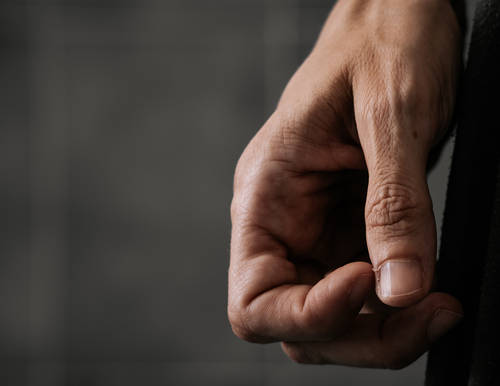The latest Restaurant traffic is roaring back after more than a year of depressed business in the United States, fueled by rising vaccinations and rescinded coronavirus restrictions. Reservations were 46 percent higher in April than in April 2019, the review site Yelp suggests. The number of restaurant visits is so high in some states that some industry experts are comparing this period to the Roaring '20s, when the hospitality industry boomed. The demand for meals out is also contributing to the country's shortage of food-service workers. That lack of employees is at the center of a national debate over heightened federal unemployment aid. As at least 22 Republican-controlled states slash checks to try to propel people back to work, the Biden administration is reviewing whether it can force states to keep paying jobless Americans. Labor Department officials, however, believe the federal government's hands are tied. Amid that controversy, the latest data shows unemployment claims have hit another pandemic low. In response to an unsettling wave of threats during the pandemic, Colorado has banned publishing personal information about health-care workers that could compromise their safety. The law makes doxing — sharing someone's private information — a misdemeanor subject to up to 18 months in jail and a $5,000 fine. Public-health officials reported a rise in bullying over the past year as the coronavirus forced them to serve as messengers about protective behaviors, including mask-wearing and social distancing. The reduced frequency of in-person school during the pandemic has been particularly devastating for students with disabilities, many of whom rely on the structure of classroom learning for a secure sense of self. Many school-district officials admit they failed to give those students the quality of learning they are legally entitled to, as advocates and experts warn that the consequences could last decades. Other important news Airline altercations appear to be on the rise as post-vaccination travel increases. Here's how to be an effective bystander.
Maryland announced its own vaccine lottery. The grand prize winner will get $400,000. As Europe returns to some semblance of pre-pandemic life, The Washington Post talked with some of the people who dedicated themselves to serving others during the crisis, among them a rugby player, a refugee and a World War II veteran. At least nine people around the world became billionaires because of profits earned from coronavirus vaccine development and distribution. |
Your questions, answered "The current CDC guidelines seem to be telling us that fully vaccinated people can do anything (legal) they want to, indoors, without masks or distancing. Does that really apply to choirs, who may stand shoulder-to-shoulder in groups of 80 or more, spewing aerosols left and right?" — Tricia in California I hear you. The pandemic cast choral singing in a new kind of light — more microscopically gnarly than most of us pictured, perhaps, with the exuberant expulsion of saliva and whatnot into the air. Early outbreaks such as the well-documented coronavirus spreading event among the Skagit County choir in Washington state reinforced that group singing was a risky activity, especially indoors. But as our defenses against the virus evolve, those risks can be re-assessed. The recent Centers for Disease Control and Prevention guidelines for relaxing masks reflect the agency's trust in the vaccines. Immunizations protect people from symptomatic covid-19 as well as asymptomatic coronavirus infection, emerging reports show. If cases are low in your area, and you are completely vaccinated, the chance of catching the virus is very slim. In recent months, the CDC has published a chart of activities, coded green, yellow and red for least to most risky behaviors. The most recently updated version of that chart identifies indoor singing as a green activity (low risk) for fully vaccinated, unmasked people — but it's red (high risk) for unvaccinated people, even when those people are wearing masks. So, yes, the guidelines really do apply to choirs. Again, that's because the CDC has confidence, bolstered by real-world observations, that the vaccines are so protective. That said, it's important to remember that these recommendations represent a floor, not a ceiling. It's still perfectly fine for vaccinated people to wear masks if they want to. "The guidelines are for the average person. They are the minimum necessary — not the maximum allowed," Megan Ranney, an emergency medicine physician and professor at Brown University, told me last week. She compared these new mask guidelines to car seat regulations: Ranney kept her children in rear-facing seats until they were 2 years old, even though, at the time, the rear-facing rules were only mandated for kids up to age 1. "I did that because I had read the science," Ranney said, "and felt that the risk of turning them around was greater than the benefit." And, just to note, this guidance wasn't designed to eliminate mask mandates. "States and private businesses would ideally continue to keep mask mandates for another month or so," Ranney said, to protect those who aren't vaccinated yet. You may still need to wear a mask indoors, depending on the rules where you sing. |






No comments:
Post a Comment